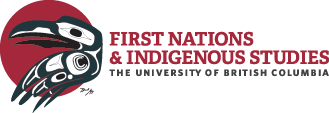Sparrow Case
…European settlement in the Lower Mainland, the Musqueam saw their rights to the land and its resources infringed upon as non-Aboriginal fishers took increasing control of the fishing industry. New…
Totem Poles
…Hanson For many years in the history of British Columbia, the presence of totem poles in the province came under threat by non-Aboriginal settlers who predominantly viewed the poles as…
Aboriginal Identity & Terminology
…woman who married a non-Indian man also lost status. This meant that legally, she ceased to be an “Indian,” as did all of her children. Conversely, a non-Indian woman who…
The Indian Act
…in distribution of wealth. Non-native colonists and missionaries saw the sharing of wealth and food at potlatches as excessive and wasteful, but ultimately they knew how integral it was to…
Royal Proclamation, 1763
…settlers. The Royal Proclamation further sets out that only the Crown can buy land from First Nations. Most Indigenous and legal scholars recognize the Royal Proclamation as an important first…
Bill C-31
…control their own band membership as a step towards self-government. Indian status – gender discrimination Under the Indian Act, an Indian woman who married a non-Indian man (whether non-Aboriginal or…
Aboriginal Title
…to non-Aboriginal Canadian citizens under Canadian common law. Over time, various court decisions have contributed to this definition of title. Along with defining Aboriginal title in more precise terms, these…
Indian Homemakers’ Association of British Columbia
Rose Charlie Rose Charlie describes the beginnings of the Indian Homemakers Association. The Indian Homemakers’ Association (IHA) of B.C. was a non-profit organization made up of Indian women in order…
Musqueam Legal History Digital Media Archive
…member Ronald Sparrow was arrested for fishing in traditional Musqueam territory with a net that was longer than was permitted by his food fishing license. Musqueam recognized that this could…
UN Declaration on the Rights of Indigenous Peoples
…the UN. General Assembly. The non-signatories: Australia, Canada, New Zealand, and the United States Australia, New Zealand, Canada, and the United States initially refused to sign the UNDRIP. The four…

